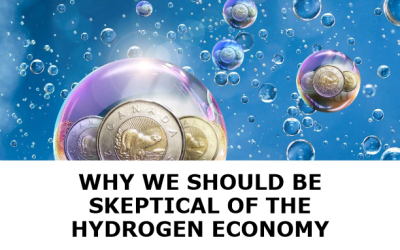The Frontier Centre for Public Policy today released a study pointing out that a “living wage” policy in Calgary would help very few poor Calgarians, cement uncompetitive practices at City Hall, and draw attention away from more effective anti-poverty initiatives.
The Frontier study, Why A ‘Living Wage’ Won’t Kill Poverty, notes that attempts to create a new municipal living wage of $13.25 for Calgary would have extremely limited benefits and substantial, though hidden, costs.
All full-time city employees already earn in excess of $13.25 per hour, thus the only staff members who would be affected by a living wage would be 680 casual and on-call staff such as youth leaders, babysitters and concession stand attendants in the recreation department. Even if the living wage was expanded to include contractors with the city, the average hourly wage in all service contract areas required by the city is currently above $13.25.
“Calgary’s desire to create its own poverty reduction policy may be commendable, but a living wage is clearly not the best available tool to fight poverty,” said the study author, Peter Shawn Taylor. He notes that U.S. experience suggests even broader living wage policies are poorly targeted to those in need.
A study of U.S. income data found that three-quarters of all living wage recipients were likely to live in households above the poverty level. Almost half of living wage recipients were expected to live in households with incomes twice the poverty line.
Distorting the labour market by mandating a living wage can also lead to a wide range of undesirable outcomes, including reduced skills training, higher unemployment among low-skilled workers and lower business profits.
“The living wage is often presented by its advocates as a policy that creates substantial social benefits at modest or insignificant cost to taxpayers. But this claim of getting something for nothing bears deeper consideration,” he noted.
Taylor argues that anti-poverty policies are most effective when they are well-defined and highly-targeted to those most in need. The living wage is neither. More effective ways to help the working poor include the federal Working Income Tax Benefit as well as provincial programs focused on welfare-to-work transitions.
A final staff proposal on a living wage for Calgary is expected to be released later this week. This report will be discussed at the March 11th meeting of the Standing Policy Committee on Finance and Corporate Services.
Copies of the Frontier Centre policy series backgrounder Why a ‘Living Wage’ Won’t Kill Poverty can be downloaded free right HERE
For more information, contact the study author at:
Peter Shawn Taylor
Office: 519-884-7692 (Waterloo, Ontario)
Cell: 519-591-7692
petershawn.taylor@rogers.com
Gary Slywchuk
403.835.8192
gary.slywchuk@troymedia.com


